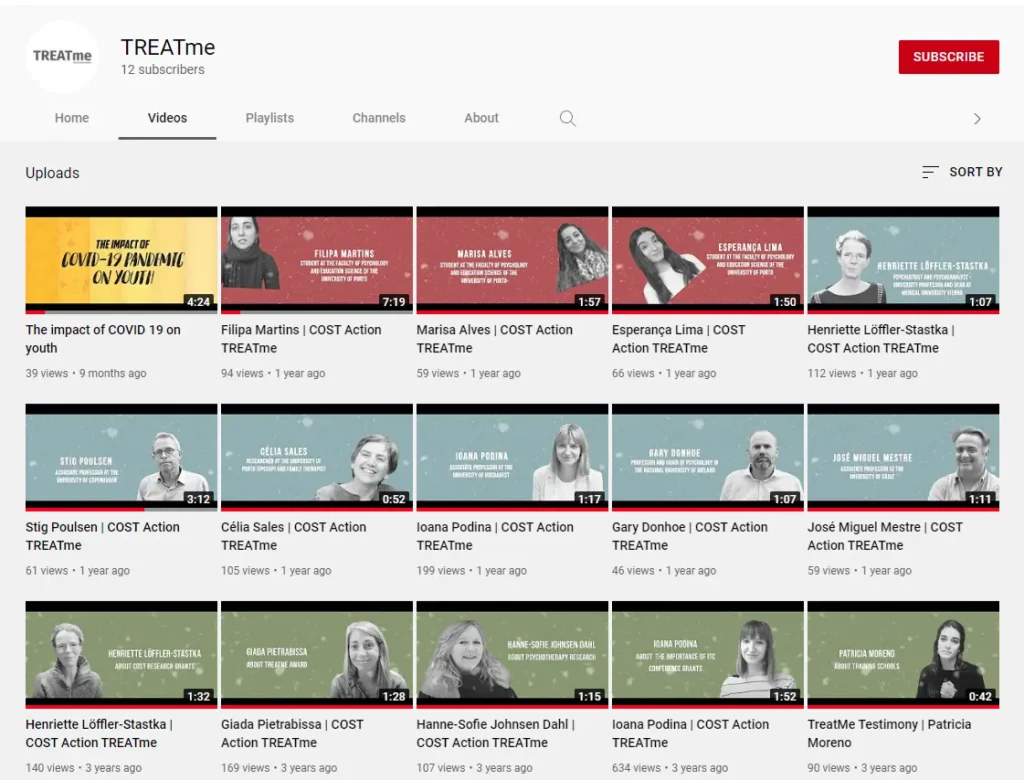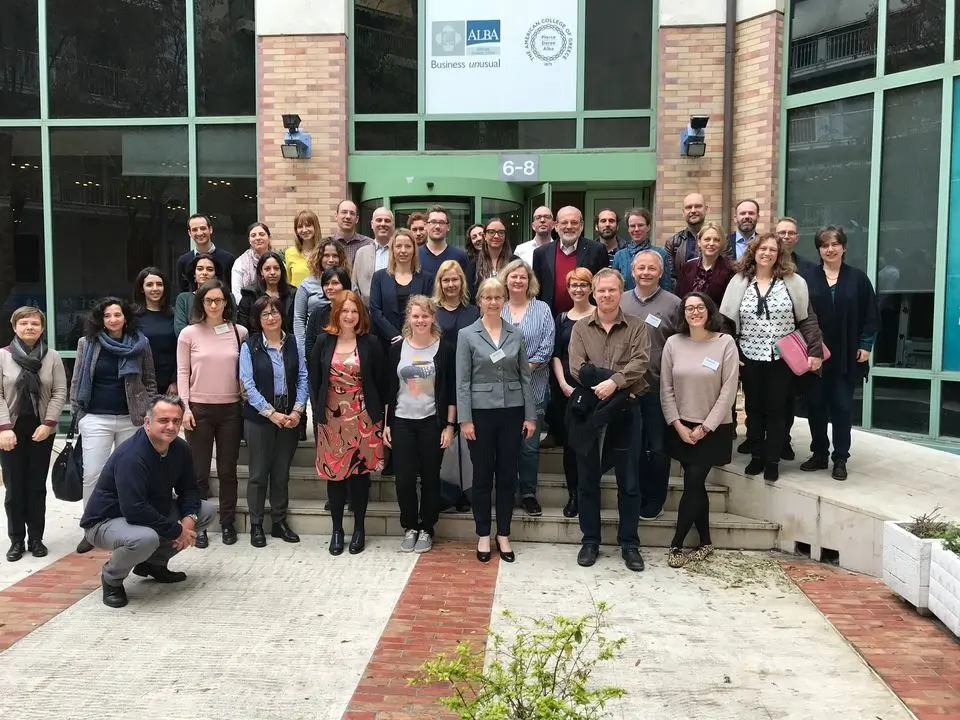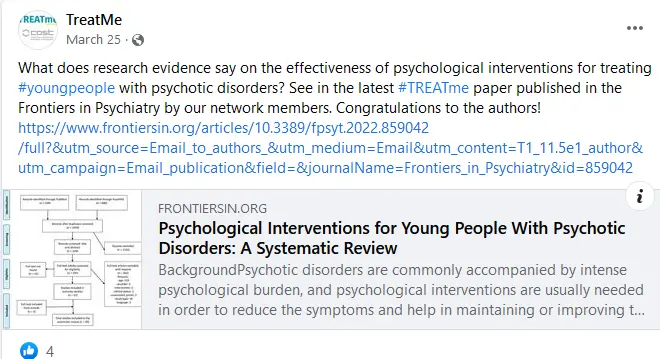A scattered landscape
Adolescence and young adulthood are a critical period in a person’s life, identified as strong vulnerability times for mental health. Specifically, 50% of lifetime mental health disorders start by the age of 14, and this number increases to 75% by the age of 24. Mental disorders in youth are associated with significant direct and indirect costs to the individual and the society, including personal distress, financial, and psychological costs to family and friends, high healthcare costs, barriers to employment and job performance, economic deprivation, and social exclusion. This is especially critical for Europe since a growing number of young Europeans suffer from the most common mental disorders such as depression and anxiety.
While this awareness of the younger generation’s fragility is an opportunity for mental health prevention and specific treatment interventions, there is a significant lack of expertise around the different treatment modalities effectiveness and appropriateness. Very little is known about the mechanisms of change/mediators and the specific markers/moderators. Stratification tools that could help clinicians deliver psychotherapy treatment tailored to the individual’s specific needs are missing. As clinicians have no empirically validated way of deciding which treatment is more likely to work for a specific individual, it is impossible to deliver empirically informed personalised treatment.
This results in decreased effectiveness and an inefficient allocation of treatment resources that greatly increase healthcare costs.
Developing stratification tools would support precision medicine by guiding personalised psychotherapy treatment for young people. Multidisciplinary collaborations are key to move into that direction and enable the translation of research into clinical practice.
The FP7 project “Roadmap for Mental Health Research in Europe”(ROMAER), initially designed to develop a comprehensive, consensus-based roadmap to promote and integrate mental health and well-being research in Europe, also stressed on this matter that there was “the need for coordinated and multidisciplinary efforts to improve knowledge on personalised psychological treatment for young people across Europe.
But funding for projects that can create and implement personalised psychotherapy for adolescents and young adults across Europe are still extremely scarce.
Introducing COST Action TREATme
To address this specific issue and facilitate the coordination of multidisciplinary efforts, COST funded a COST Action that started on 31 March 2017: the COST Action European Network on Individualized Psychotherapy Treatment of Young People with Mental Disorders (TREATme).
TREATme arose from nationally funded research groups and brought together researchers, clinicians, NGOs, and policy makers. During its 4,5 years ‘lifetime, TREATme has been very sharp in defining the Action’s focus areas and has actively worked at delivering the many milestones that set the building blocks of a new knowledge for individualised psychotherapies for youth.
Targeted objectives
The main aim of TREATme was to create a sustainable European multidisciplinary researcher network focusing on stratification tools to individualise psychotherapy for young people with mental disorders.
To target research activities and precisely address the missing components of this topic, TREATme concentrated its working area along the six high level priorities in ROAMER, with the overall aim to exchange and disseminate specific knowledge about important factors that will improve outcome in different youth psychotherapy modes.
The COST Action looked at promoting coordinated and collaborative research activities, as well as funding applications on personalised treatment for young people with mental health problems in Europe. To achieve this, TREATme focused on the following partial task objectives:
Share scientific knowledge on treatment and research methods in psychotherapy for young persons
Promote the sustainability of the network beyond the life of the Action
Support a high proportion of early careers ‘investigators and especially female and ITC researchers in the COST Action
Meet the researchers
TREATme brought together a multidisciplinary network of researchers with different backgrounds in psychotherapy treatments (e.g., cognitive behavioural therapy and systemic family therapy approaches). Since the start, a strong collaboration among members has been established and the network kept growing during the Action’s lifetime.
TREATme’s YouTube channel features a series of short videos introducing the different participants.

How do we adapt treatments to individual patients for therapy optimisation?
Amongst them, Stig Poulsen, Associate Professor at the University of Copenhagen, describes here the approach to take to address the share of patients that do not improve sufficiently when treated with standardised traditional psychotherapies.
“We need strategies that can tell us what kind of particular treatment could work for certain patients. For examples, it could be that certain part of characteristics could indicate that we need cognitive behaviour therapy or psychodynamic therapy or other psychotherapy approaches.” Stig also highlights the importance to remain flexible during the lifetime of a psychotherapy to adapt the treatment continuously while the patient is in treatment. He adds: “As indeed we often start the psychotherapy with a standardised approach and then often realise after a couple of sessions that the patient does not seem to make any sufficient progress. “
Looking at such factors is the way to narrow-down research on this topic for the coming years, and to develop markers that helps identifying the lack of progress as well as markers for specific solutions.
Involving young researchers – patient and public involvement
Engaging young researchers within the TREATme research network has been one of this COST Action’s key characteristic. This had the double effect of helping the Action by involving the same generation’s group than the research target, as well as giving an opportunity to these young researchers to benefit from additional data for their academic studies.
For Filipa Martins, and Marisa Alves, both Students at the Faculty of Psychology and Education Science of the University of Porto, this was the chance to coincide their dissertation projects’ along TREATme’s in-depth literature review task, and draw from the same data collected in this frame. Filipa was specifically interested in understanding the impact of youth involvement in mental health research.
“It’s been a unique opportunity to watch the research process so closely. Besides learning a lot about the research, itself, I am learning a lot from other researchers.”
Esperança Lima | Student at the Faculty of Psychology and Education Science of the University of Porto
The COST Action TREATme followed a specific conductive line setting key priorities from the start and engaging with a wide community to address them.
One of these priorities was to include female and young researchers in leadership positions.
63% of the Management Committee (MC) members and 71% of MC substitutes were female researchers.
Most of them were young and at the beginning of their career, mainly working alone or in small research groups and were in need of external and international cooperation. Several of these researchers were the only researcher in their institution and even in their country focusing on youth psychotherapy. The Action leveraged research investments in many countries: at an institutional, national, and international level.
Working Groups
The establishment of the TREATme’s Working Groups (WG) followed an integrated approach to help achieving the Action’s objectives in the most effective way. The WG included multi-disciplinary researcher groups, clinicians, psychotherapy training institutions, and representatives from young mental health user organisations.
Special focus on the impact of the COVID-19 pandemic on young people
The work performed by the Action also allowed to deeply explore the impact of the COVID-19 crisis on the mental health of young people. By way of example, a narrative review has been published, focusing on the negative psychological impact of the pandemic outbreak and the high vulnerability of the young in the development of psychological distress.
TREATme: A multidisciplinary network
The network, initially with experts from 29 countries, has been enlarged during the lifetime of the Action. Experts with different backgrounds in psychotherapy treatments have been involved in the action activities and a strong collaboration among members has been established.

“The main benefits of addressing the scattered knowledge on individualised psychotherapy for young people with mental disorders through a COST Action, was how the recruitment process, the COST objectives and rules became a helpful platform to establish a sustainable, multidisciplinary network of researchers. The COST Action also gave the opportunity and was a requirement for the establishment of large databases in the field. “
Dr Randi Ulberg, Chair of COST Action TREATme.
On the COST Action’s website, video interviews have been gathered from people all over Europe sharing their experiences: https://www.treat-me.eu/dissemination/video-interviews/
Outreach and dissemination
COST Action TREATme has been very active in sharing knowledge and disseminating results. With a rich website, newsletters and active social media accounts, the knowledge gathered by the Action has been shared among researchers, policymakers, and the general public. Several dissemination events, organised in presence and online, have been carried out.




Publications and dissemination activities
Large databases for reviewing the state of the art have been established as a foundation for the publication of systematic reviews (currently, the researchers in TREATme are the only ones having access to the databases, but the plan is to make them available to everyone).
All publications disseminated by TREATme can be found here
Among the list of dissemination products arising from the work and the collaboration with COST Action TREATme , the following can be highlighted:
1- The review “Engaging Children and Young People in Digital Mental Health Interventions: Systematic Review of Modes of Delivery, Facilitators, and Barriers”.
2- The systematic review “Psychological Interventions for Young People With Psychotic Disorders: A Systematic Review”.
3- A Narrative review on COVID-19 impact on the negative psychological impact of the pandemic outbreak and the high vulnerability of the young in the development of psychological distress.
4 – Following the ending of the COST Action, the Chair Prof Randi Ulberg published an article named “Develop knowledge summaries on personalised psychotherapy for young people”
5- A Protocol for a Systematic Review of Practices and Impact, which covers the guidelines on how to include young individuals directly in the whole research process, was produced in collaboration with COST Action TREATme.
Takeaways
At the end of the Action, TREATme calls for a coordinated joint European effort to address this urgent need.
Specifically, the researchers of this network suggest, in accordance with ROAMER and the findings of the TREATme COST action (Appendix 3), that the upcoming Horizon Europe program addresses the urgent challenge on youth’s patient-centred mental health by creating calls that will enable researchers across Europe to conduct large-scale applied clinical research in youth and family psychotherapy.
The efforts the Action has put to foster collaborative funding applications has been paying off as the network is continuing beyond the end of the Action, in the form of a virtual network. As highlighted by the COST final assessment review, the “success of action will be sustained over time via further collaborative projects which have been developed under the action.”
“The main gain of the Action was the sustainable collaboration established among isolated researchers. Before the end of the Action and built on the structure in the COST Action, an organisational plan for future collaboration was established. The collaboration in the specific Action WGs continues.”
COST Action TREATme Chair Dr Randi Ulberg
In addition to the WG specific review studies, members of TREATme work across the WGs in different collaborative studies and apply for funding in the field of youth psychotherapy. Future collaborative funding applications are planned.
“Action sustainability works when there is a real community behind, and this is the case of CA16102. So, when an Action combines excellent scientific outcomes, and also manages to develop a long-lasting community, it is the win-win result COST is looking for.” says TREATme’s COST Science Officer, Dr. Giuseppe Lugano






